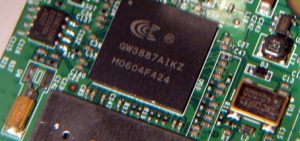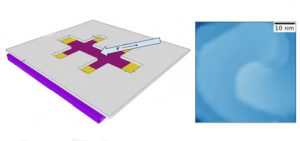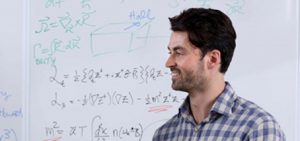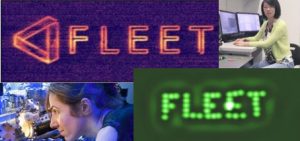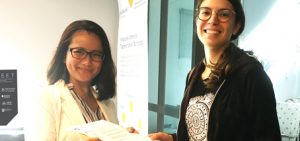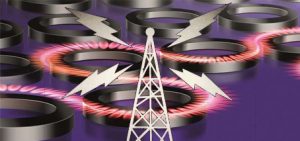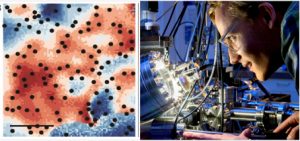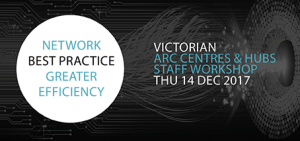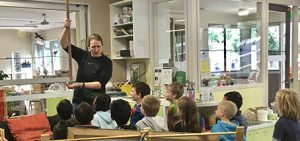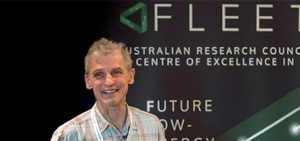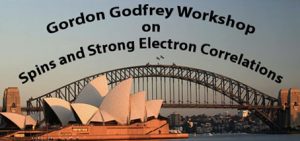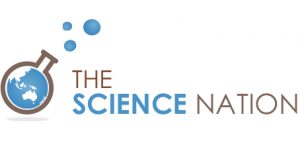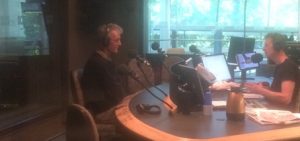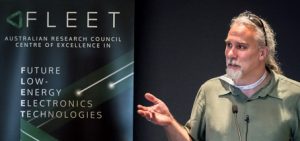Engage
See news from around FLEET, below
Catch up on all past issues of FLEET News newsletter
FLEET News
Wait. What do you mean ‘transistors’? Yep, ‘transistors’ are still the basis of electronics. In essence, they’re the tiny controllable switches that form the building blocks of logic circuits, switching between open (0) and closed (1). In your Dad’s old ‘wireless’ radio, transistors were the small metallic components shaped like War of the Worlds war tripods. Those replaced the glass …
Applying an electric field switches conduction mode of a topological material FLEET researchers achieved a significant landmark in the search for a functional topological transistor in 2017, using an applied electric field to switch the electronic conduction mode of a topological material. A ‘gate’ electrode was used to switch the conduction mode in the topological material Na3Bi. Na3Bi is a …
Congratulations to FLEET UNSW postdoc Harley Scammell who has been awarded a Fulbright Scholarship to work with world-renowned theoretical physicist Subir Sachdev at Harvard University on the mechanisms behind superconductivity – an exotic quantum phase of matter. The Australian-American Fulbright Commission promotes education and cultural exchange between Australia and the US, By the completion of the Fulbright program, researchers around …
Some terms and materials relevant to FLEET. The first sentence or two of each definition is aimed at non-physicists. For physicists in the field, these are suggested as accurate, non-jargon simplifications to help communicate your science. More information for experts is given in italics for some terms, as well as useful links. 2D Two-dimensional materials are a single layer of atoms …
FLEET researchers taking an innovative, even ‘playful’, approach to their science have created a couple of unique and interesting branding displays for the Centre. >>>FLEET PhD student Fan Ji developed this micro-sized logo (right) at UNSW. The FLEET logo is etched onto the two-dimensional interface between two materials, in letters only a few thousandths of a millimetre high, using bias-assisted …
“I love working in FLEET because it challenges me all the time, and because it has deepened my understanding in an essential topic to the progress of technology. I thought I would never be capable to work in an environment full of such brilliant minds.” Jessica Alves at Monash University Engineering is the recipient of FLEET’s first Women in FLEET …
FLEET Director Michael Fuhrer spoke Friday with ABC Radio 2CC Canberra’s Rod Henshaw about making physics more accessible, and FLEET’s search for better, ultra-low-energy transistors. Listen Prof Fuhrer was in Canberra for the International Physics Summer School on Topological Matter at ANU. Fuhrer discussed energy use in information and communications technology (ICT) and the alternatives that FLEET is pursuing, …
Electronically-smooth nature of trisodium bismuthide makes it a viable alternative to graphene/h-BN Researchers have found that the topological material trisodium bismuthide (Na3Bi) can be manufactured to be as ‘electronically smooth’ as the highest-quality graphene-based alternative, while maintaining graphene’s high electron mobility. Na3Bi is a Topological Dirac Semimetal (TDS), considered a 3D equivalent of graphene in that it shows the same …
Sharing best practice, finding efficiencies, setting up future networks – and swapping a few war stories Operations staff from 18 ARC-funded centres met in Melbourne last week to share best practice and learnings, and to develop future networks among similar roles. How do centres become ‘greater than the sum of the parts’? What strategies have professional staff found to enhance …
Reaching schoolkids, and setting scientists up for outreach success Bringing practising scientists to schools brings enormous benefits. The FLEET Geeks program sees FLEET members performing science shows at primary schools and kindergartens, demonstrating physics with equipment not typically available to students. The program brings scientists to the students, allowing them to ask questions about scientific phenomena seen in the show, …
Physics experiments at temperatures a billionth of outer space, and the benefits of flexibility in a science career. Nobel physics laureate Prof Wolfgang Ketterle told a crowd of around 200 at Swinburne University of Technology last week about Bose-Einstein condensates (BECs), and other strange states of matter that exist at nano-Kelvin temperatures, which open a new door to the quantum …
Over 80 Australian and international physicists met at UNSW last month to discuss spin and strong-electron correlations in the university’s biennial Gordon Godfrey Workshop, including a very strong FLEET contingent. Leading international speakers came from as far afield as China, Denmark, France, Germany, Israel, Italy, Japan, Switzerland, Russia and USA, including Prof David Neilson (University of Camerino), a pioneer of electron-hole exciton …
FLEET supported the first Melbourne show of Science Says!, a science entertainment event run by The Science Nation, with FLEET’s A/Prof Meera Parish (Monash University) and Prof Chris Vale (Swinburne University of Technology) appearing on the panel at the Royal Society of Victoria. FLEET collaborated with Swinburne University of Technology, Monash University School of Physics and Astronomy, and the Australian …
“That’s not right!” Well, yes, it is. Prof Wolfgang Ketterle, in Australia with FLEET, teaches ABC Radio Melbourne’s Red Symons a thing or two about states of matter. In particular, Bose Einstein condensates. Listen below. Ketterle, in town for FLEET’s inaugural annual workshop in Torquay, is visiting the ultra-cold atomic labs at Swinburne today, where FLEET researchers use Bose-Einstein condensates …
How much energy do you burn using the internet? It’s more than you think. While a smartphone or home PC itself doesn’t burn too much energy, a tremendous amount of electricity is consumed in the massive data centres that keep us all connected via the net. Over a hundred physicists meeting in Torquay this week may have the solution. The …

